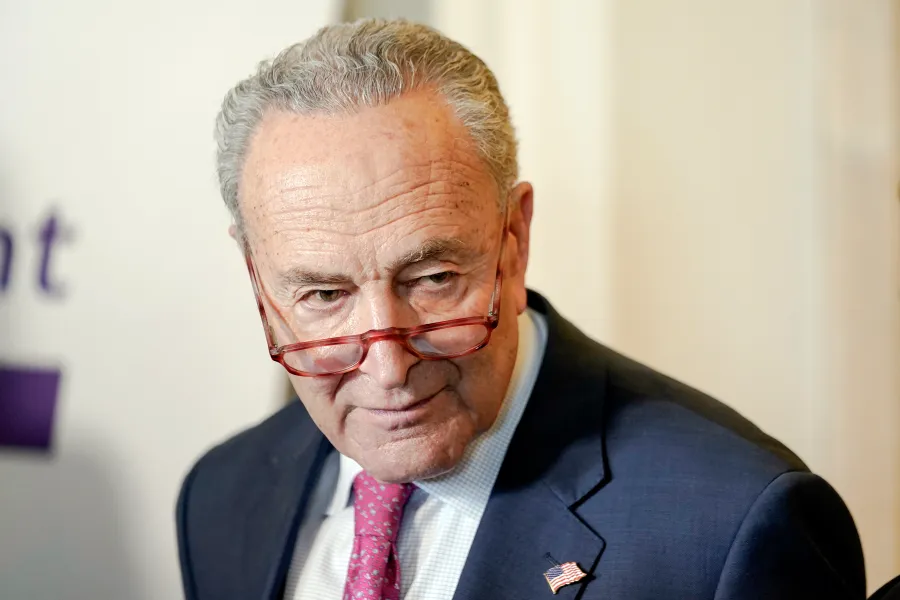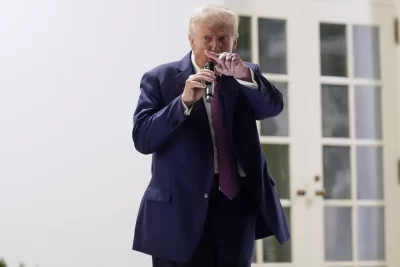Senate Majority Leader Chuck Schumer and 22 other Democratic senators are urging federal regulators to investigate multibillion-dollar acquisitions by oil giants ExxonMobil and Chevron, saying the deals could lead to higher prices at the gas pump.
In a letter Wednesday to the Federal Trade Commission, the lawmakers said Exxon’s proposed $60 billion acquisition of Pioneer Natural Resources and Chevron’s proposed $53 billion purchase of Hess Corp. are two of the largest petroleum deals in U.S. history and could violate antitrust law.
“These deals are likely to harm competition, risking increased consumer prices and reduced output throughout the United States,’’ the senators wrote. The deals threaten to harm small operators and suppress wages, they added.
The letter is signed by 23 senators, including Minnesota Sen. Amy Klobuchar, chair of the Judiciary Committee’s antitrust panel, and antitrust hawks such as Sens. Elizabeth Warren of Massachusetts and Bernie Sanders of Vermont.
While supporters have argued that the global market for oil and gas is so large that even dominant firms such as Exxon or Chevron cannot restrict global capacity, “the FTC must consider how Exxon’s or Chevron’s vertically integrated operations may harm American competition in spite of the global market,” the senators wrote.
A spokesman for the FTC said the agency had received the letter but declined further comment.
Chevron, Exxon and other oil companies have announced huge profits from strong energy prices and demand since Russia’s invasion of Ukraine in February 2022. Exxon reported $9.1 billion in profits in the quarter that ended Sept. 30, while Chevron reported $6.5 billion in profits.
Exxon said in a statement that the proposed deal with Texas-based Pioneer Resources would enhance U.S. energy security and benefit the American economy and consumers.
“For all those concerned about competition, the fact that the two companies combined represent about 5% of U.S. oil production should set their mind at ease. For all those who seek even greater U.S. energy independence and far lower emissions, this merger represents nothing but upside for our economy and our environment,’’ the company said.
Chevron said its proposed deal with New York-based Hess would strengthen long-term performance while “delivering higher returns and lower carbon” dioxide emissions that contribute to global warming.
Both deals must be approved by federal regulators.
Environmental groups hailed the call for an investigation of what some called “merger mania” within the oil industry that threatens competition.
“Big Oil getting bigger is a threat to our climate and our democracy,’’ said Lukas Ross, senior program manager at Friends of the Earth. “The proposed mergers would supercharge Exxon and Chevron’s outsized political power, allowing them to lock-in another generation” of planet-warming greenhouse gas emissions, he said. “The FTC has every reason to act.”
A spokeswoman for the American Petroleum Institute, the oil industry’s top lobbying group, said the proposed mergers would increase production and improve environmental performance.
“Instead of focusing on stale partisan talking points, we should focus on protecting America’s energy security at a time of global unrest and lifting regulatory barriers that are hurting consumers,” API’s Bethany Williams said.
Schumer and other Democrats also targeted the oil industry last year, as they made a failed bid to give the FTC increased authority to crack down on companies that engage in price gouging. Responding to concerns about high gasoline prices, Democrats said the FTC needs more tools, including stiffer fines and penalties and a team of dedicated experts to monitor markets and go after price gouging.
A bill to crack down on price gouging was not approved in the last Congress. A similar bill is pending before the Senate Commerce, Science and Transportation Committee.
About Author






